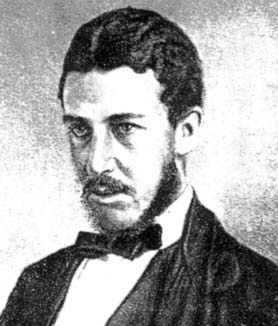Zdroj: The Theory of Political Economy (1871), Chapter III, Theory of Utility, p. 82.
William Stanley Jevons: Citáty anglicky
Zdroj: The Theory of Political Economy (1871), Chapter V, Theory of Labour, p. 172.
“It is clear that economics, if it is to be a science at all, must be a mathematical science.”
Zdroj: The Theory of Political Economy (1871), Chapter I, Introduction, p. 38.
Zdroj: The Theory of Political Economy (1871), Chapter V, Theory of Labour, p. 173.
Reflections on his earlier life, written when he was 27 (December 1862), published in Letters and Journal of W. Stanley Jevons (1886), edited by Harriet A. Jevons, his wife, p. 12.
Zdroj: The Theory of Political Economy (1871), Chapter VII, Theory of Capital, p. 190.
Preface To The Second Edition, p. 29.
The Theory of Political Economy (1871)
Zdroj: The Theory of Political Economy (1871), Chapter III, Theory of Utility, p. 61.
Zdroj: The Theory of Political Economy (1871), Chapter VII, Theory of Capital, p. 191.
Zdroj: The Theory of Political Economy (1871), Chapter VII, Theory of Capital, p. 185.
Zdroj: The Theory of Political Economy (1871), Chapter V, Theory of Labour, p. 176.
Zdroj: The Theory of Political Economy (1871), Chapter VII, Theory of Capital, p. 209.
“but, in reality, there is no such thing as an exact science.”
Zdroj: The Theory of Political Economy (1871), Chapter I, Introduction, p. 40.
Zdroj: The Theory of Political Economy (1871), Chapter VII, Theory of Capital, p. 188.
Preface
The Substitution of Similars, The True Principles of Reasoning (1869)
Zdroj: The Theory of Political Economy (1871), Chapter VII, Theory of Capital, p. 198.
Zdroj: The Theory of Political Economy (1871), Chapter III, Theory of Utility, p. 61.
Zdroj: The Theory of Political Economy (1871), Chapter IV, Theory of Exchange, p. 97.
Zdroj: The Principles of Science: A Treatise on Logic and Scientific Method (1874) Vol. 1, p. 169
Zdroj: The Theory of Political Economy (1871), Chapter I, Introduction, p. 37.
Zdroj: The Theory of Political Economy (1871), Chapter VIII, Concluding Remarks, p. 215.
Preface To The First Edition, p. 4.
The Theory of Political Economy (1871)
Zdroj: The Theory of Political Economy (1871), Chapter IV, Theory of Exchange, p. 110.
Zdroj: The Principles of Science: A Treatise on Logic and Scientific Method (1874) Vol. 1, p. 136
"The Railways and the State." https://archive.org/stream/essaysaddresses00oweniala#page/467/mode/2up In Essays and Addresses, Macmillan & Co., 1874, page 467.
Zdroj: The Theory of Political Economy (1871), Chapter III, Theory of Utility, p. 78.
Zdroj: The Theory of Political Economy (1871), Chapter VIII : Concluding Remarks, The Noxious Influence of Authority, p. 221.
